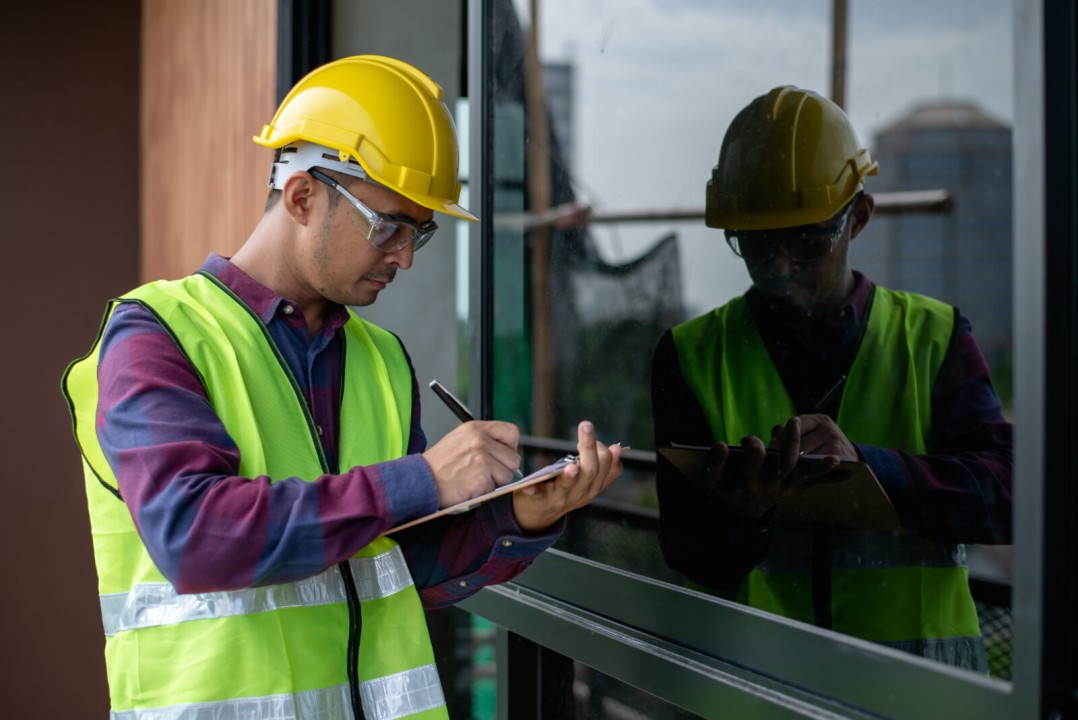Business
Understanding Private Provider Inspections: A Faster Path to Project Approval
Published
2 months agoon
By
Prime Star
In the construction and development industry, inspections are critical checkpoints to ensure safety, code compliance, and quality. Traditionally, these inspections have been conducted by government officials or municipal inspectors. However, an increasingly popular alternative is private provider inspections, which offer a streamlined, flexible, and efficient way to meet inspection requirements.
Whether you are a builder, property owner, or developer, understanding private provider inspections can help you navigate the approval process faster and more efficiently. This guide explores what private provider inspections are, how they work, their benefits, and considerations when opting for this service.
What Are Private Provider Inspections?
Private provider inspections refer to inspections carried out by qualified third-party companies or individuals authorized to perform certain regulatory inspections outside of government agencies. These private inspectors are licensed and certified to conduct various inspections that municipalities would otherwise handle.
The scope of private provider inspections varies by jurisdiction but often includes:
- Building and structural inspections
- Electrical system inspections
- Plumbing and mechanical inspections
- Energy code compliance checks
- Fire safety inspections
These inspections follow the same codes and standards as public inspections but are conducted by private entities contracted by builders or developers.
Why Choose Private Provider Inspections?
Choosing private provider inspections has several advantages that can significantly benefit your project timeline and overall experience.
1. Faster Scheduling and Inspections
Municipal inspectors often have heavy workloads and limited availability, causing delays in inspection scheduling. Private providers offer more flexible and timely scheduling, which can keep your project moving without costly interruptions.
2. Increased Control Over Inspection Process
With private providers, you have direct communication with the inspectors, allowing for better coordination and clearer understanding of requirements. This reduces misunderstandings and expedites approvals.
3. Expanded Inspection Hours
Many private providers offer extended hours or weekend inspections, accommodating busy construction schedules and reducing downtime.
4. Consistent and Specialized Expertise
Private inspectors often have specialized knowledge in certain inspection areas, providing thorough evaluations and consistent application of codes.
5. Reduced Bureaucracy
Working with private inspectors cuts through some red tape associated with public agencies, resulting in faster report turnaround and fewer administrative hurdles.
How Do Private Provider Inspections Work?
The process for private provider inspections generally follows these steps:
Step 1: Verify Eligibility and Regulations
Not all inspections can be done by private providers. It’s essential to check local regulations and obtain necessary approvals for using private inspections.
Step 2: Select a Licensed Private Provider
Choose a qualified private inspection company or individual certified to perform the required inspections in your area.
Step 3: Schedule Inspections
Coordinate inspection dates that align with your construction milestones to avoid delays.
Step 4: Inspection Conducted
The private provider conducts the inspection following applicable codes and standards, documenting findings.
Step 5: Report Submission
The inspection report is submitted to the relevant authority or directly to the client, depending on jurisdictional rules.
Step 6: Follow-Up Inspections
If corrections are required, private providers can perform re-inspections quickly, keeping the project on track.
Types of Projects That Benefit From Private Provider Inspections
Private provider inspections are particularly useful in:
- Large-scale commercial developments
- Residential subdivisions with multiple inspections required
- Time-sensitive renovation projects
- Complex systems requiring specialized inspections
- Projects where municipal inspection resources are limited
Important Considerations When Using Private Provider Inspections
Licensing and Accreditation
Ensure the private provider holds all necessary licenses and certifications and is authorized by local authorities to perform inspections.
Transparency and Communication
Choose providers known for clear reporting, transparency, and good client communication.
Cost Implications
Private inspections may come with additional fees but often result in overall cost savings due to faster project completion.
Compliance Assurance
The inspection results must be accepted by the municipal or regulatory authority overseeing the project.
Common Misconceptions About Private Provider Inspections
- Myth 1: Private inspections are less thorough.
Private providers follow the same codes and standards as public inspectors, ensuring equal rigor.
- Myth 2: Private inspections are only for large projects.
Many residential and small commercial projects also benefit from private inspections.
- Myth 3: Private inspections replace all public inspections.
Usually, private inspections cover specific scopes; some inspections may still require public agency involvement.
How to Choose the Right Private Provider Inspection Service
- Check qualifications and certifications.
- Review experience with similar projects.
- Ask for references and past client feedback.
- Confirm availability and flexibility.
- Ensure they provide detailed, clear reports.
The Future of Private Provider Inspections
With growing demand for efficiency in construction and development, private provider inspections are becoming more integrated into regulatory frameworks. Advancements in technology—like digital reporting, remote inspections, and real-time communication—are further enhancing their value.
Conclusion
Private provider inspections offer a valuable alternative to traditional municipal inspections by providing faster scheduling, greater flexibility, and specialized expertise. For those looking to keep construction projects on schedule without compromising quality or compliance, private provider inspections represent a smart, modern solution.
Before choosing this route, ensure you understand local regulations and select a reputable provider. Doing so can streamline your project approvals, reduce costly delays, and ultimately lead to smoother construction experiences.

MegaCustom: Personal Gifts Made Beautiful

Design Something Special with MegaCustom

Top 10 SEO Agencies for Barber Shops

The Secret to Choosing Colours That Truly Work with Your Flooring

Why Vietnam Became the Traveler’s Favorite Destination

The Story of Elijah Judd: Wynonna Judd’s Son and His Private Journey

Who Is Susan Andrews? Inside the Private Life of Tucker Carlson’s Wife

Why Hiring AWS Developers is Key for Your Cloud Strategy in 2026

Balcony Power Plant Plug-in Solar:101 Guide

AI in Human Resources: Elevating Workforce Strategy Through Intelligence

Who Is Marlene Knaus? The Untold Story of Niki Lauda’s First Wife

Curious About JOI Database? Read This First Before You Click Anything

Jacqueline Bernice Mitchell: The Inspiring Story of Jerry Rice’s Ex-Wife

Should You Use Wooflix in 2025? Honest Review and Best Alternatives

Where Is Noelle Watters Now? Jesse Watters’ Ex-Wife’s Life After Divorce

Where Is Barbara Boothe Now? Inside Her Life After Larry Ellison

Alisande Ullman Today: What Happened After Her Divorce from Leslie Nielsen?

Where Is Tanya Hijazi Now?: All About Rick James’ Former Wife

Wendy Lang: Meet the Therapist Married to Cenk Uygur

Mickey Middleton: The Untold Story of Bryan Cranston’s First Wife

MegaCustom: Personal Gifts Made Beautiful

Design Something Special with MegaCustom

Top 10 SEO Agencies for Barber Shops

The Secret to Choosing Colours That Truly Work with Your Flooring

Why Vietnam Became the Traveler’s Favorite Destination

The Story of Elijah Judd: Wynonna Judd’s Son and His Private Journey

Who Is Susan Andrews? Inside the Private Life of Tucker Carlson’s Wife

Why Hiring AWS Developers is Key for Your Cloud Strategy in 2026

Balcony Power Plant Plug-in Solar:101 Guide

AI in Human Resources: Elevating Workforce Strategy Through Intelligence
Categories
Trending
-

 Celebrity6 months ago
Celebrity6 months agoWho Is Marlene Knaus? The Untold Story of Niki Lauda’s First Wife
-

 Entertainment5 months ago
Entertainment5 months agoCurious About JOI Database? Read This First Before You Click Anything
-

 Celebrity3 months ago
Celebrity3 months agoJacqueline Bernice Mitchell: The Inspiring Story of Jerry Rice’s Ex-Wife
-

 Entertainment5 months ago
Entertainment5 months agoShould You Use Wooflix in 2025? Honest Review and Best Alternatives
